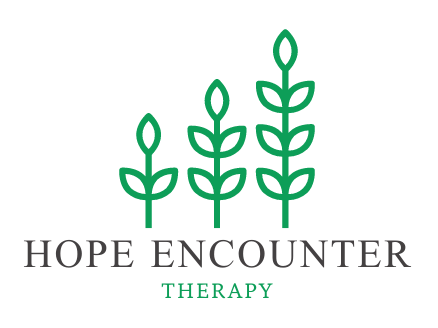If you and your partner are considering EMDR (Eye Movement Desensitization and Reprocessing) therapy to heal trauma within your relationship, you may be wondering what the sessions look like, how they work, and whether they’re safe and effective.
EMDR therapy is widely recognized for helping individuals process trauma, but it can also be highly beneficial when adapted for couples therapy. In this post, we’ll walk you through what to expect during couples EMDR therapy, addressing common questions about the process and how it supports healing and connection.

What Is EMDR Therapy?
EMDR is a therapeutic approach designed to help people process and resolve traumatic memories. Traditionally used for individual trauma, EMDR has been successfully adapted for couples who are dealing with relationship challenges rooted in past trauma.
During EMDR, clients focus on a traumatic memory while engaging in bilateral stimulation, such as eye movements, tapping, or auditory tones. This process helps the brain reprocess the memory, reducing its emotional intensity and making it feel more manageable.
When applied to couples therapy, EMDR can help both partners understand each other’s trauma.
How Does EMDR Work in a Couples Context?
While EMDR is often conducted individually, couples EMDR therapy can take several forms:
- Individual EMDR Sessions with a Couples Focus: Each partner attends individual sessions, but the focus is on how their trauma impacts the relationship.
- Conjoint EMDR Sessions: Both partners participate together, processing shared trauma or exploring how one partner’s trauma affects the relationship.
- Combination Approach: Some therapists may alternate between individual EMDR work and joint sessions to address both personal and relational aspects.
What Happens During a Couples EMDR Session?
Assessment and Preparation
In the initial sessions, the therapist will:
- Assess both partners’ histories, including past trauma and current relationship challenges.
- Identify specific memories or triggers that impact the relationship.
- Develop coping strategies to manage emotional distress during processing.
- Establish ground rules to ensure that both partners feel safe and respected during the process.
Therapists emphasize the importance of emotional safety. One partner’s trauma processing may bring up intense feelings for the other, so EMDR therapists work to prepare both partners for what they might experience.
Desensitization and Processing
When the actual EMDR processing begins, the therapist will:
- Focus on one partner at a time if working conjointly.
- Use bilateral stimulation (eye movements, tapping, or sounds) to help the processing.
- Guide the client to recall a traumatic memory while noticing any thoughts, emotions, or physical sensations that arise.
The other partner may be asked to observe, support, or simply be present, depending on what feels safe for both individuals. In some cases, the observing partner may learn how to offer grounding support during emotional moments.
Integration and Reflection
After processing, the therapist helps both partners:
- Reflect on the experience and share feelings (if appropriate).
- Discuss how new insights or reduced reactivity might positively impact their relationship.
- Practice grounding techniques to help regulate emotions if needed.
The goal is for both partners to understand each other’s trauma responses more clearly and develop compassionate ways to support each other.
Common Questions About Couples EMDR Therapy
- Is EMDR Safe for Couples?
Yes, when conducted by a trained and experienced therapist, EMDR is considered safe. However, it’s essential to work with a therapist skilled in trauma-informed care and couples dynamics. All of our therapists at Hope Encounter Therapy are systemic (trained to work with couples and families), trauma-informed EMDR clinicians. Your therapist will assess whether both partners are emotionally stable enough for joint processing.
- Can EMDR Make Things Worse?
It’s possible to feel temporary discomfort during or after processing as painful memories surface. However, this is typically part of the healing process. Our therapists will provide coping strategies to manage any emotional discomfort.
- How Does EMDR Help Couples Heal?
Couples EMDR therapy can:
- Reduce emotional triggers that cause conflict.
- Improve communication and empathy by helping partners understand each other’s trauma responses.
- Strengthen emotional bonds by fostering a sense of safety and support.
- Help process shared traumatic events, like loss, betrayal, or accidents.
By addressing the root causes of emotional pain, couples can break free from negative cycles and build a healthier, more resilient relationship.

Why Choose EMDR for Relationship Trauma?
Many couples find that traditional talk therapy alone does not fully address the intensity of trauma-related conflicts. EMDR goes beyond surface-level communication issues by targeting deep-seated memories and beliefs that fuel emotional reactions.
- By integrating EMDR into couples therapy, partners can experience:
- Less reactivity during conflicts.
- Greater emotional awareness and regulation.
- A deeper understanding of each other’s past experiences.
- Renewed connection as old wounds heal.
Tips for Couples Considering EMDR:
- Be Open to Individual Work: Sometimes, individual sessions are necessary before engaging in joint EMDR therapy.
- Prioritize Emotional Safety: Only pursue conjoint sessions when both partners feel ready and supported.
- Practice Patience: Trauma processing takes time, and healing is a gradual journey.
- Maintain Open Communication: Share your thoughts and feelings with your partner after sessions to foster understanding.
Final Thoughts: Healing Together with EMDR
Couples EMDR therapy can be a transformative experience, helping partners process trauma-related triggers and deepen their emotional connection. Whether the trauma stems from childhood, past relationships, or shared experiences, EMDR offers a path to healing and growth.
If you and your partner are struggling with trauma’s impact on your relationship, consider speaking with one of our trained EMDR therapists who specialize in couples work. Healing together is not just possible — it’s achievable with the right support.
Ready to Explore EMDR as a Couple? Contact Hope Encounter Therapy for more information or to schedule a session.
📧 Email: Emdr@HopeEncounterTherapy.com
📞 Phone: 919-335-3420
Taking the first step toward healing can be challenging, but it’s worth it. Let us help you rebuild your relationship with understanding and compassion.

Heal Together with EMDR Therapy in Raleigh, NC
Ready to break free from the pain of past trauma and rebuild trust in your relationship? At Hope Encounter Therapy, we specialize in helping couples heal and reconnect through proven approaches like EMDR therapy in Raleigh, NC. Reach out today to begin your journey toward deeper understanding, emotional safety, and lasting connection. Follow these three simple steps to get started:
- Contact us for a free consultation.
- Meet with one of our skilled EMDR therapists.
- Begin creating a lasting connection with your partner!
Other Services Offered at Hope Encounter Therapy
At Hope Encounter Therapy, we’re dedicated to supporting both individuals and couples as they heal and grow in their own unique ways. While EMDR therapy remains a core part of our work, we understand that healing isn’t one-size-fits-all. That’s why we also provide Somatic Experiencing, Narrative Therapy, and Cognitive Processing Therapy (CPT) to offer care that’s thoughtfully customized. Our individual therapy services are centered around trauma recovery, and our blog offers practical guidance, insights, and mental wellness resources.


